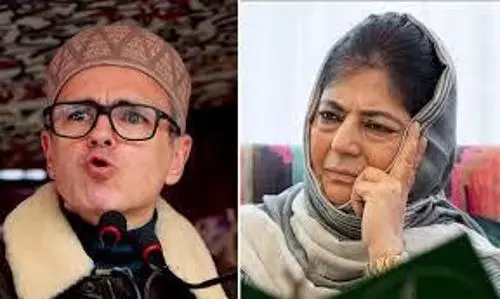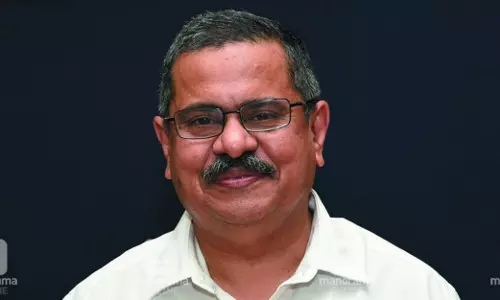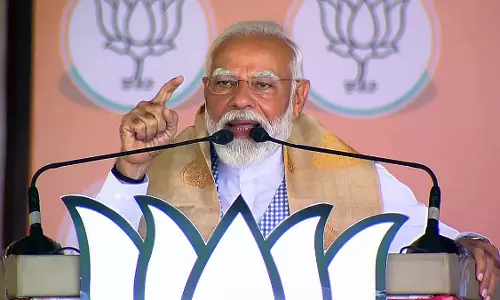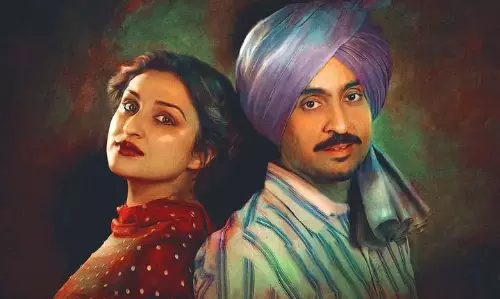
The implications of the Ajmer blast verdict
text_fieldsUnion Home Minister P Chidambaram had cautioned against the phenomenon of ‘saffron terrorism’ while speaking in a conference of State police chiefs and Inspector Generals of Police in Delhi in 2010.
It was the first time that one of the mainstream political leaders in India officially used the term ‘saffron terrorism’. The Sangh Parivar outfits had then unleashed harsh criticisms against the Minister. There were oppositions even from within the Congress. Chidambaram’s statement came in the wake of coming to light the role of the Hindutwa organisations including RSS in the terror attacks that took place in different parts of the country. The RSS however, denied the role of Sangh Parivar in any of the attacks. They usually claim to be the biggest champions of patriotism. The verdict of a special National Investigation Agency (NIA) court in Jaipur on Wednesday related to the 2007 Ajmer blast case, rubbishes the argumentations of the RSS. The relevance of the Jaipur verdict is that a court in the country has acknowledged that the RSS terrorism is a reality.
An explosion took place on October 11, 2007 in the dargah of Khawaja Moinuddin Chisti at the time of Iftaar, claiming three lives and injuring seventeen. Islamic terror organisations including Lashkar-e-Taiba were initially believed to be behind the attacks. Even the liberal writers had then put blames on the Wahhabi terrorists for the attacks because of their religious disparities towards dargahs. However when the investigations were carried out properly, the role of RSS members in the attacks were revealed. The hands of the Hindutwa terror outfits came to light not only in the Ajmer blast case but also later in the Malegaon blasts on September 8, 2006 that killed 37, the Samjhauta Express bombings on February 18, 2007 claiming the lives of 68 persons and the Mecca Masjid blasts in Hyderabad on May 18, 2007 that killed sixteen people. But it should be understood that it wasn’t due to the efficiency of the investigation agencies that these facts came to light, but due to the confessions of Swami Aseemanand, a Sangh Parivar pracharak.
Aseemanand has confessed before a metropolitan magistrate in Delhi’s Tis Hazari court in December 2010 about his involvement in all the above blasts. However a strange fact is that he was acquitted in the Ajmer blast case even after admitting his crime. Despite all the sabotage attempts with the centre’s backing including influencing the witnesses, the court found Devendra Gupta, Sunil Joshi and Bhavesh Bhai patel guilty. Sunil joshi, an active RSS pracharak was shot dead in mysterious circumstances in Madhya Pradesh soon after the Ajmer blast. It is believed that the Hindutwa fanatics murdered Sunil Joshi to wipe away the case. The other two persons found guilty have been sentenced to life imprisonment.
The Ajmer blast case is the first among the bomb explosion cases ruled by a court in which the Hindutwa terrorists were accused. That the Sangh Parivar followers were punished in the case is a crucial factor. Despite the huge attempts to weaken the case, the fact revealed is that the role of the Hindutwa terrorists were so strong such that at least two persons were awarded punishment. At the same time, most of the blasts cases in which Muslim youth were accused, the convicts are set free on the completion of the trial. The government has been adopting an approach of making the people suffer by prolonging the trial indefinitely in such cases. The court verdict in the Ajmer case rejects what has been propagated by the mainstream media as well as the concepts in public conscience about terrorism. It also underlines the truth that Hindutwa terrorism exists. Despite all these, the patriotic rhetoric of the same Sangh Parivar will be heard endlessly. And the media would be continuing to fabricate news stories and theories against Islamic terrorists.























